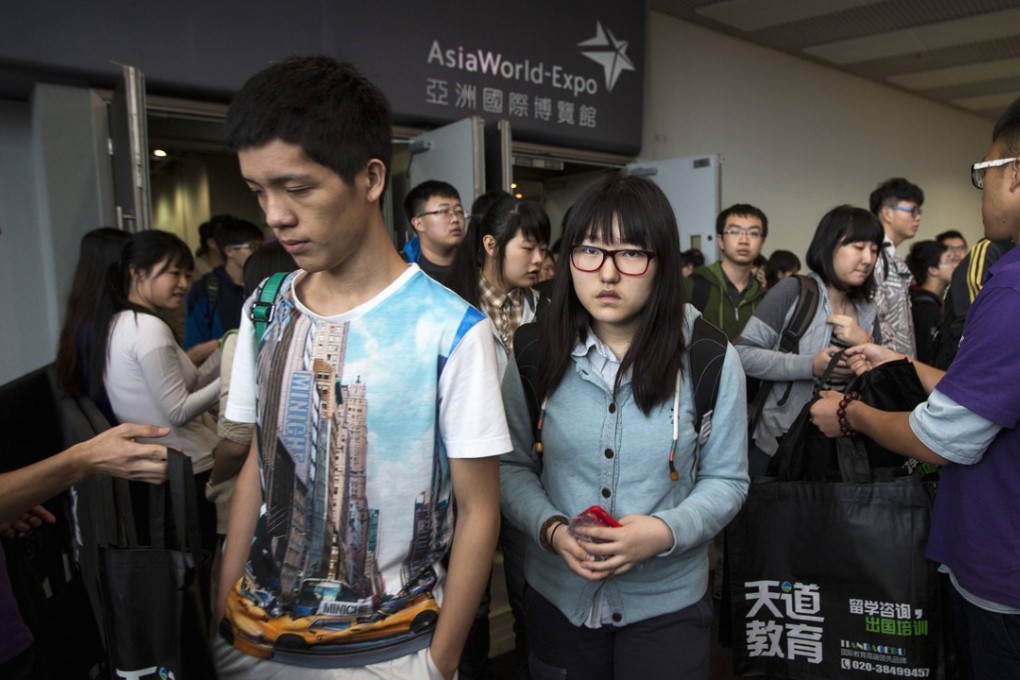After SATs: why Chinese students need to rethink US university applications strategy
US universities are scrapping SATs amid cheating scandals and the proliferation of cookie-cutter applications from rote-learning Chinese students

When the Scholastic Assessment Test (SAT) was held this month in Hong Kong, hotels and restaurants near the exam venue in the AsiaWorld-Expo braced for waves of candidates coming from over the border in China.
Traditionally used by US universities for making admission decisions, the test is not held in China, so every year more than 10,000 students flock to Hong Kong to sit it.
However, US universities have been shifting away from standardised tests as a yardstick in their selection of students. The University of Chicago announced in June that it would stop requiring SAT results from applicants. Additionally, Ivy League universities including Harvard and Yale have dropped the essay component of the SAT.
This trend could send shivers down the spine of students from China who, having been educated in schools that emphasise rote learning, tend to excel in exams.

One reason the SAT is losing its credibility among US tertiary institutions is the number of cheating scandals involving the test in recent years.
In 2015, more than 10 Chinese nationals were swept up in a federal investigation of a Pittsburgh-based cheating ring. The students were accused of paying up to US$6,000 for others to sit the exam for them.